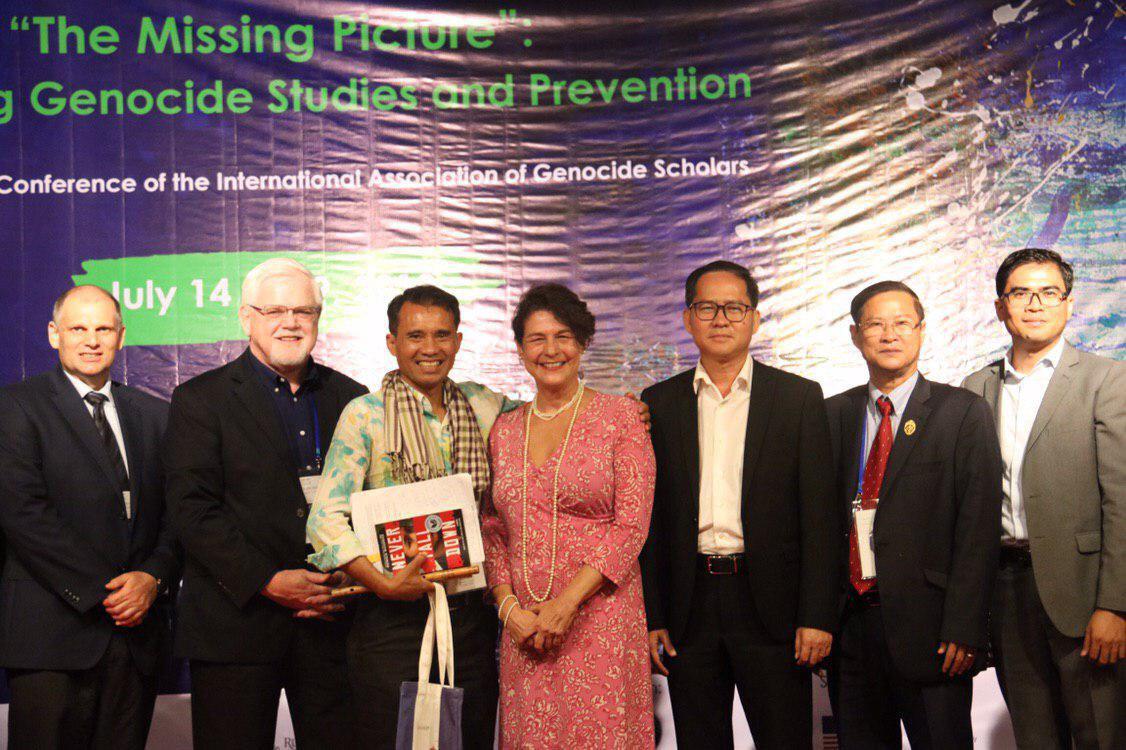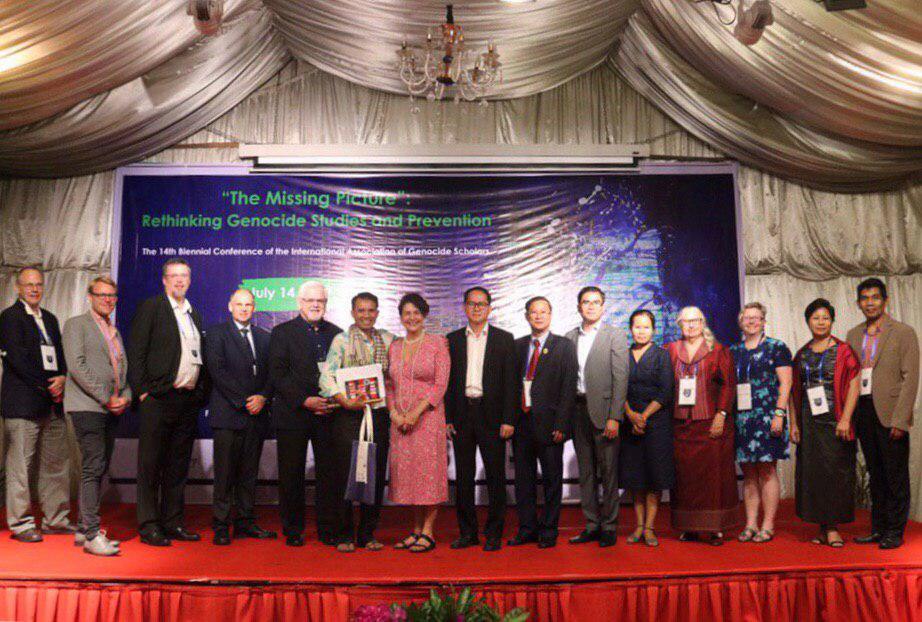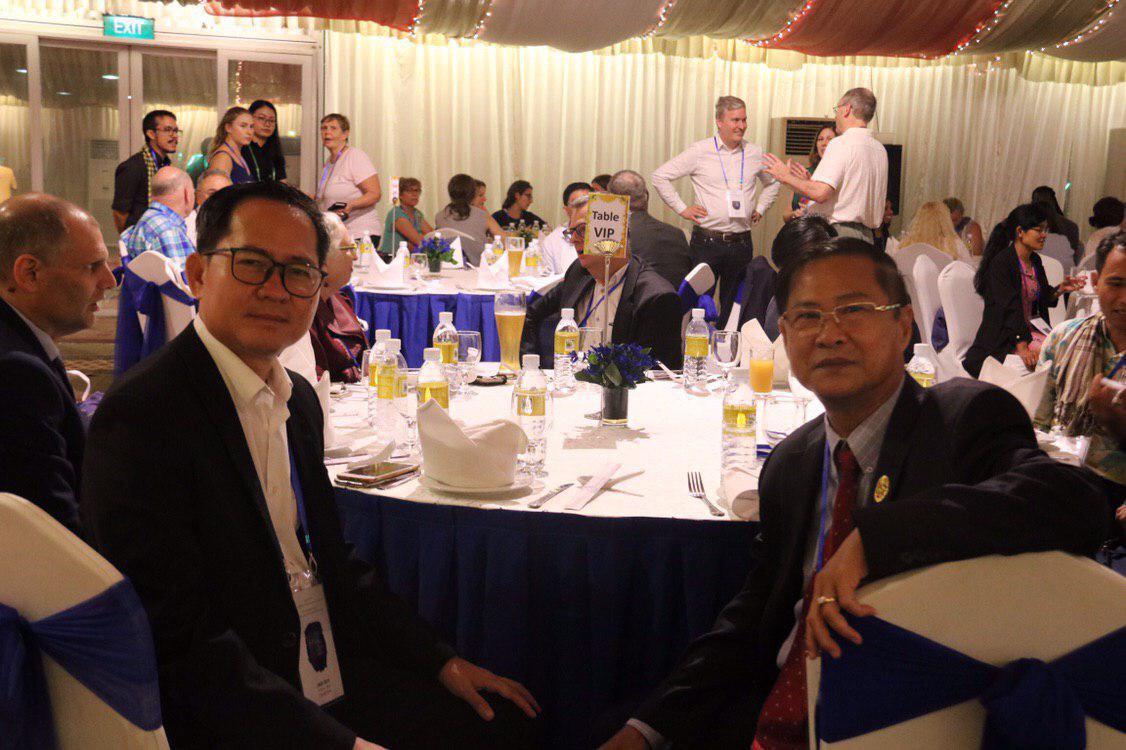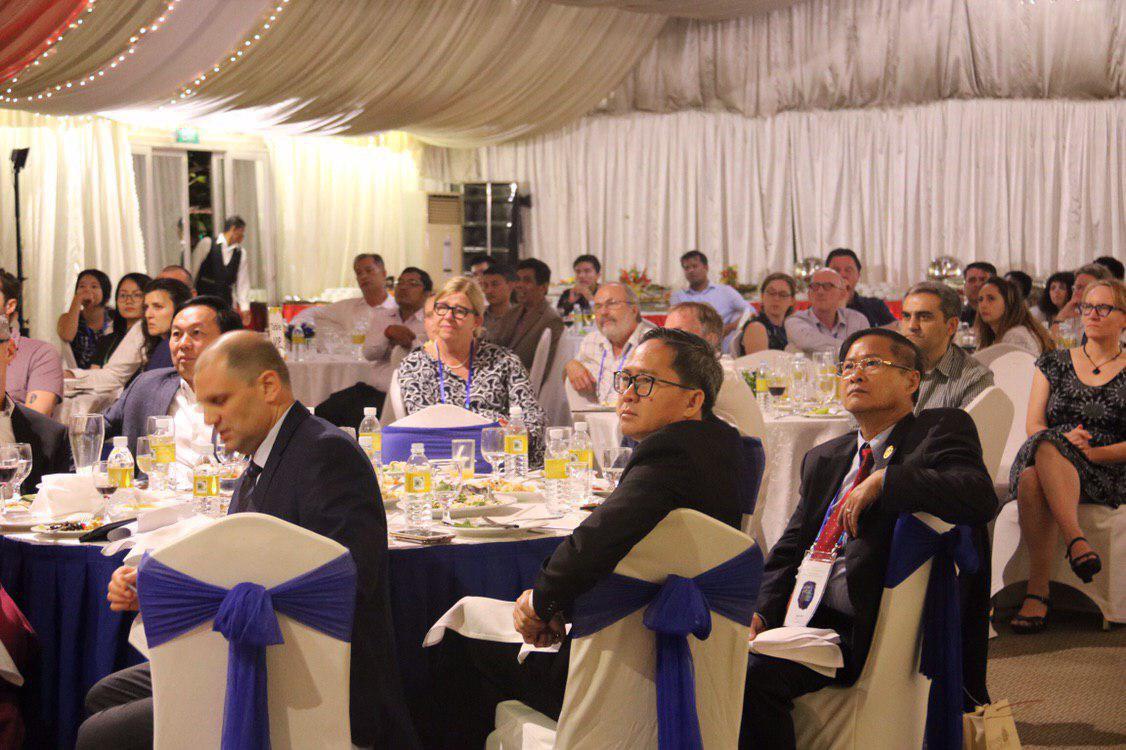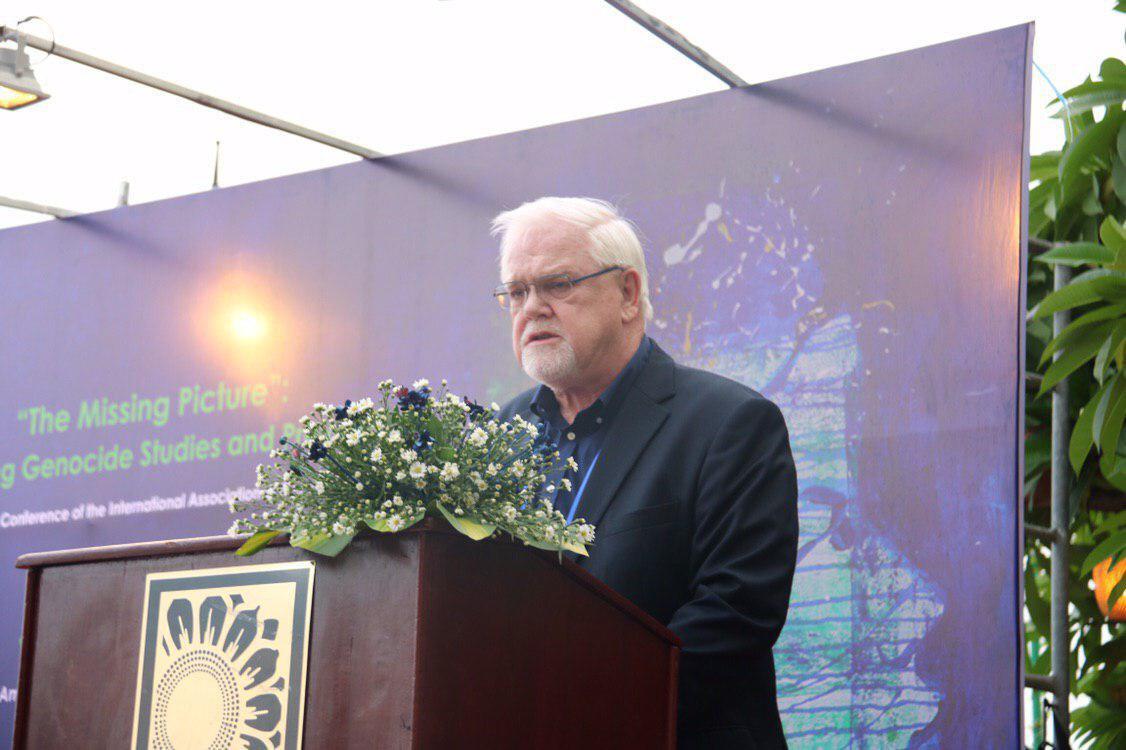Phnom Penh (FN), July 15 —World-class scholars from across the globe are in Cambodia to share their research and working experience on the “rethinking genocide studies and prevention”.
About 500 scholars and students across the globe are set to spend four days in Phnom Penh from July 14-17 to deliberate their diverse learning, researching, and working experiences related to genocide, of which Cambodian past tragedy can tell a great deal.
Genocide in Cambodia is one of many topics to be deliberated including those in Sierra Leone and Rwanda.
This year, while Cambodia is chosen as a venue for the international conference, it marks the 40th anniversary following the fall of the the Khmer Rouge regime that was blamed for the death of more than three million Cambodians during their reign from 1975 to 1979 .
Kenneth Dunn, president of the American University of Phnom Penh (AUPP) that co-hosts with Rutgers University, the International Conference of Genocide Prevention, said “Forty years ago, Cambodia was a place of devastation. Today, we greet you as a new Cambodia, an exemplar of how a country can build upon the ashes of a tragic past to build a new, optimistic future.”
He added “With such a past, Cambodia has important lessons to share with the world about genocide recovery, and is eager to engage in global conversations about the prevention of this terrible scourge.”
The recent convictions of the Extraordinary Chambers in the Courts of Cambodia—the Khmer Rouge Tribunal—contribute to the universal commitment to prevent genocide and mass atrocity by holding those most responsible to account.
The trials have helped to bring justice and closure to many survivors.
The conference takes place at the new state-of-the-art campus of AUPP and some 50 Cambodian scholars are ready to present their research and share with international scholars.
Founded in 1994, the International Association of Genocide Scholars is a global, interdisciplinary, non-partisan organization that seeks to further research and teaching about the nature, causes, and consequences of genocide, and to advance policy studies on the prevention of genocide.
=FRESH NEWS
